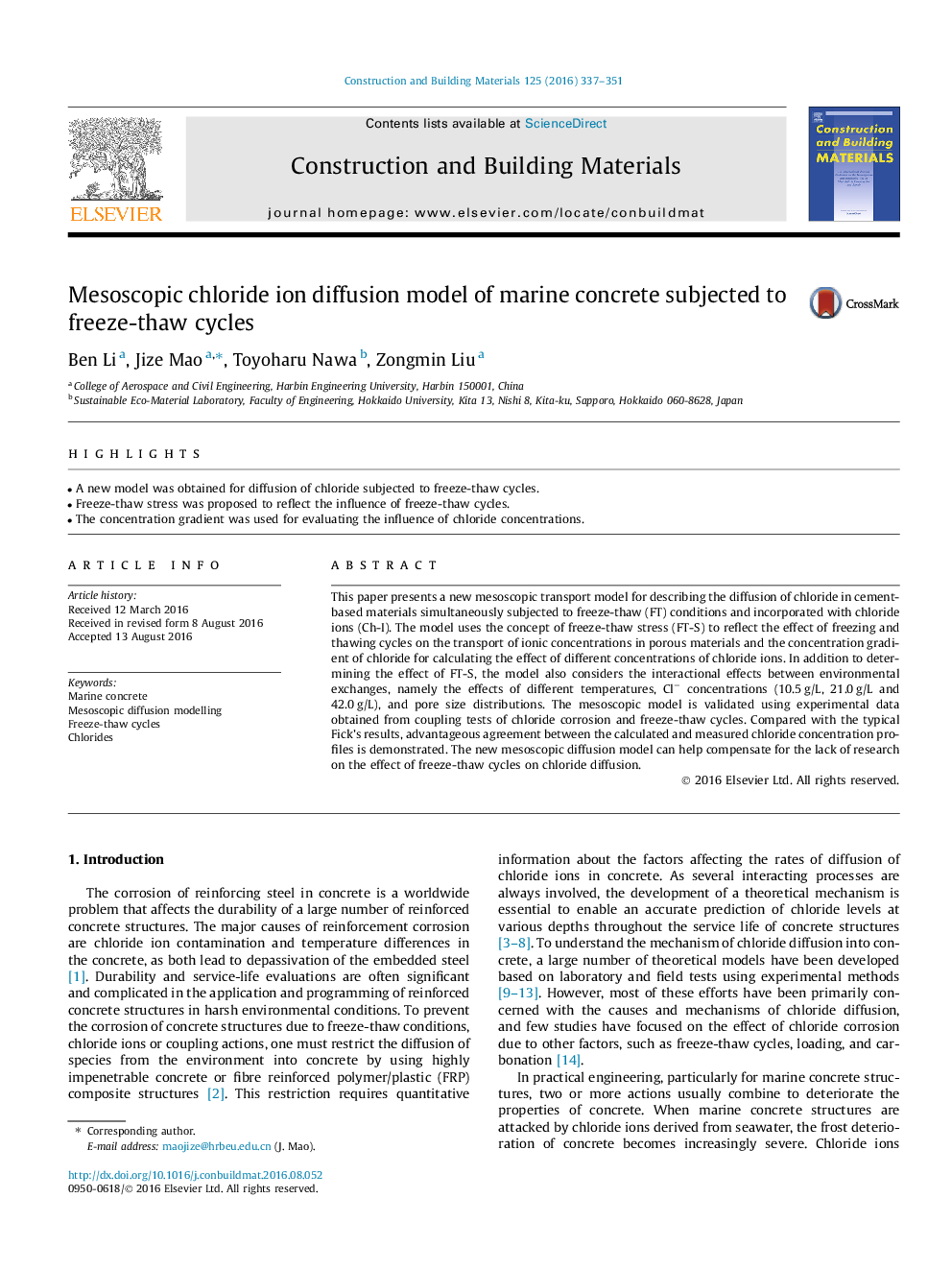| Article ID | Journal | Published Year | Pages | File Type |
|---|---|---|---|---|
| 4918622 | Construction and Building Materials | 2016 | 15 Pages |
Abstract
This paper presents a new mesoscopic transport model for describing the diffusion of chloride in cement-based materials simultaneously subjected to freeze-thaw (FT) conditions and incorporated with chloride ions (Ch-I). The model uses the concept of freeze-thaw stress (FT-S) to reflect the effect of freezing and thawing cycles on the transport of ionic concentrations in porous materials and the concentration gradient of chloride for calculating the effect of different concentrations of chloride ions. In addition to determining the effect of FT-S, the model also considers the interactional effects between environmental exchanges, namely the effects of different temperatures, Clâ concentrations (10.5Â g/L, 21.0Â g/L and 42.0Â g/L), and pore size distributions. The mesoscopic model is validated using experimental data obtained from coupling tests of chloride corrosion and freeze-thaw cycles. Compared with the typical Fick's results, advantageous agreement between the calculated and measured chloride concentration profiles is demonstrated. The new mesoscopic diffusion model can help compensate for the lack of research on the effect of freeze-thaw cycles on chloride diffusion.
Related Topics
Physical Sciences and Engineering
Engineering
Civil and Structural Engineering
Authors
Ben Li, Jize Mao, Toyoharu Nawa, Zongmin Liu,
